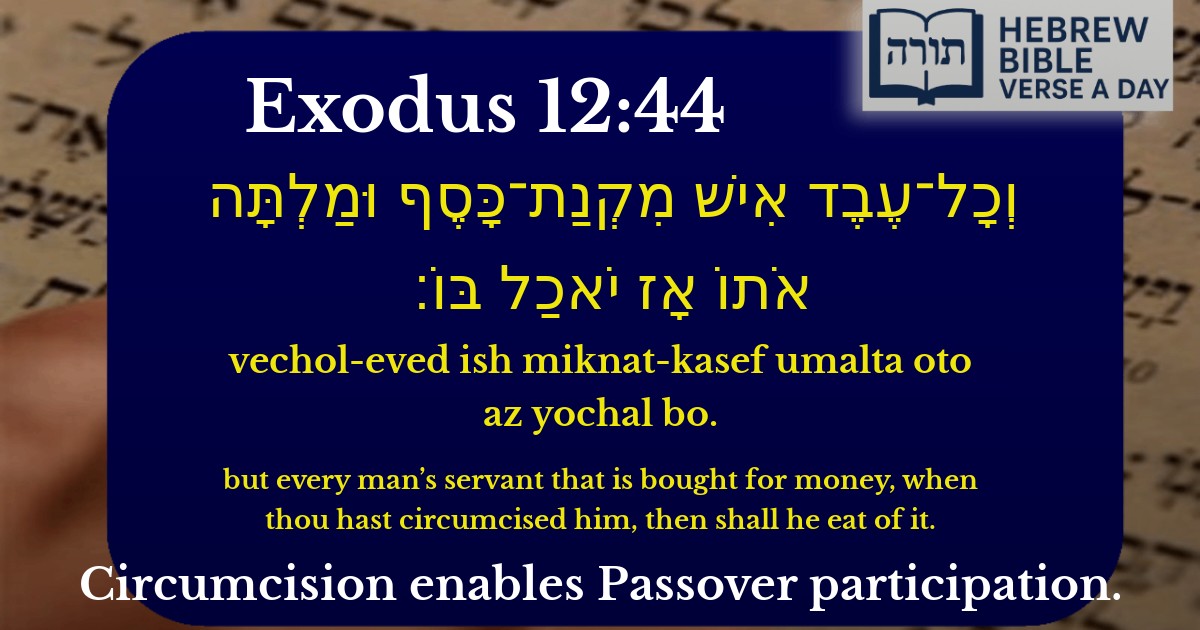Join Our Newsletter To Be Informed When New Videos Are Posted
Join the thousands of fellow Studends who rely on our videos to learn how to read the bible in Hebrew for free!
Hebrew Text
וְכָל־עֶבֶד אִישׁ מִקְנַת־כָּסֶף וּמַלְתָּה אֹתוֹ אָז יֹאכַל בּוֹ׃
English Translation
but every man’s servant that is bought for money, when thou hast circumcised him, then shall he eat of it.
Transliteration
Vechol-eved ish miknat-kasef umalta oto az yochal bo.
Hebrew Leining Text
וְכׇל־עֶ֥בֶד אִ֖ישׁ מִקְנַת־כָּ֑סֶף וּמַלְתָּ֣ה אֹת֔וֹ אָ֖ז יֹ֥אכַל בּֽוֹ׃
וְכׇל־עֶ֥בֶד אִ֖ישׁ מִקְנַת־כָּ֑סֶף וּמַלְתָּ֣ה אֹת֔וֹ אָ֖ז יֹ֥אכַל בּֽוֹ׃
🎵 Listen to leining
Parasha Commentary
📚 Talmud Citations
This verse is not quoted in the Talmud.


Context in the Torah
The verse (Exodus 12:44) appears in the context of the laws of the Korban Pesach (Paschal sacrifice), detailing who may partake of it. The Torah specifies that a servant purchased with money must first be circumcised before being permitted to eat from the sacrifice.
Rashi's Explanation
Rashi (Exodus 12:44) clarifies that the term "מִקְנַת־כָּסֶף" ("bought for money") refers to a non-Jewish servant acquired by a Jewish master. The requirement of circumcision signifies the servant's entry into the covenant of Avraham Avinu (Abraham our forefather), thereby making him eligible to participate in the mitzvah of the Korban Pesach, which is reserved for members of the Jewish people or those who have joined the covenant.
Rambam's Halachic Perspective
Rambam (Hilchot Korban Pesach 5:6) rules that a servant who undergoes circumcision but has not yet immersed in a mikveh (ritual bath) is still not permitted to eat the Korban Pesach. This emphasizes that full conversion—circumcision and immersion—is required for a servant to be considered part of Klal Yisrael (the Jewish community) in this context.
Midrashic Insight
The Mechilta (Bo 12) connects this verse to the broader theme of geirut (conversion). It teaches that a servant’s circumcision is akin to the Jewish people’s readiness for the Exodus—just as Bnei Yisrael needed circumcision (as mentioned in Joshua 5:5) to merit redemption, so too must a servant affirm his commitment to Hashem’s covenant to partake in the Pesach offering.
Key Halachic Principles